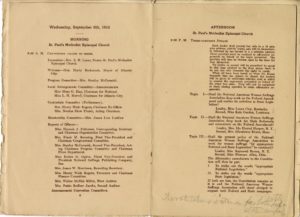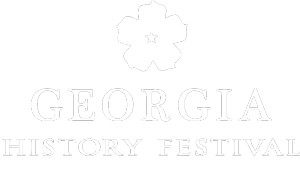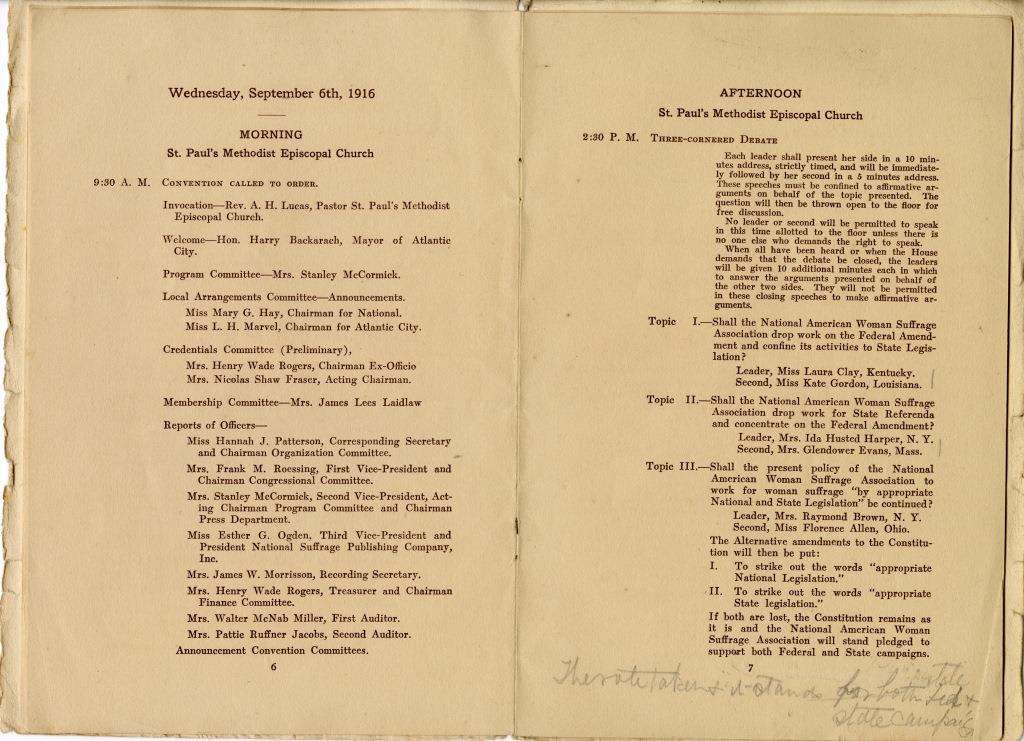The 2019-2020 Georgia History Festival theme, “Women’s Suffrage at 100: The 19th Amendment and Georgia History,” focuses on exploring the legacy of women’s suffrage in Georgia and the United States in commemoration of the 100th anniversary of the struggle to pass the 19th Amendment, in which women won the right to vote. Throughout the Festival, the Collection Highlights Blog will share materials from GHS collections that present varying perspectives, opinions, and efforts related to the women’s suffrage movement and its legacy in Georgia.

This is a program from the 1916 National American Woman Suffrage Association Convention. NAWSA became the nation’s leading suffrage group after a merger with the American Woman Suffrage Association in 1890. Renowned suffragist Susan B. Anthony was one of the early leaders of the post-consolidation NAWSA.
The NAWSA 1916 Convention program gives readers unique insight into debates that took place between suffragists about how their goals should be achieved. Suffragists did not always agree on the best way to secure voting rights for women. A “three-cornered debate” was presented at the NAWSA convention. The “three corners” referred to the different approaches to suffrage. Some were in favor of focusing on strategy to pass a federal amendment while others thought a state-by state-approach was best. Ultimately the women’s suffrage movement involved many strategies to win suffrage at both the state and federal levels.
Although members the of the organization had different ideas about how to win the vote for women, it was important for them to be united against the strong opposition they faced on many fronts. The purpose of the debate at the NAWSA convention was to decide which legal strategy the NAWSA was going to support officially.

